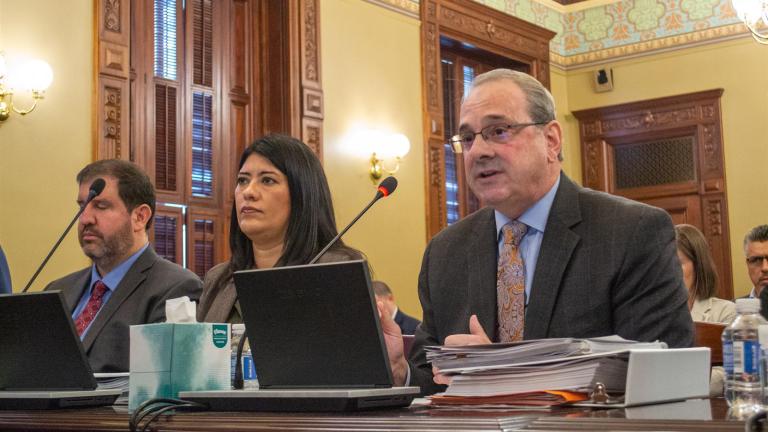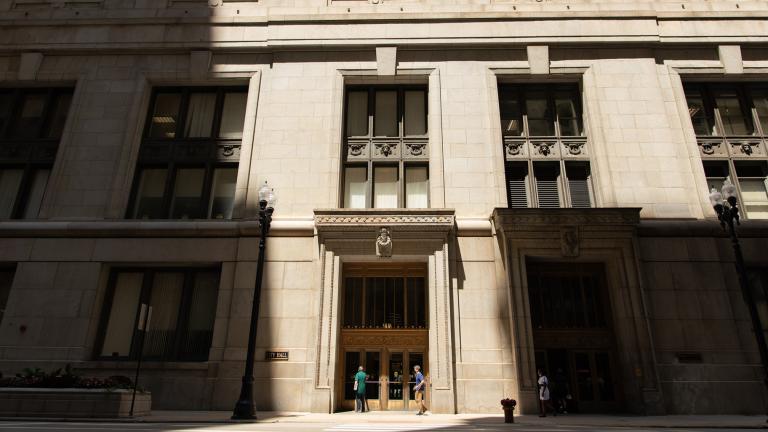The four legislative leaders in the Illinois General Assembly say they have struck a long-awaited deal to reform the state’s woefully underfunded public pension system. After a meeting Wednesday morning, Republican leaders -- Jim Durkin from the House and Christine Radogno from the Senate -- along with Democratic House Speaker Michael Madigan, announced the deal after a meeting ended early this afternoon downtown.
“The four of us have reached an agreement, and we’re going to speak to the membership and try and secure the votes,” Madigan said, acknowledging that it would not be easy to secure all the votes needed.
But it figures to be even more difficult to do so in the Senate where the Democratic supermajority has favored a more union-friendly approach.
“It’s going to be a long uphill climb based on how far we’ve come,” said a spokesperson for Senate President John Cullerton.
Cullerton, after today’s meeting, officially called the Senate back to session next Tuesday, December 3 to consider the pension proposal. Last week, Madigan announced that the House would go back to session that day as well.
Leaders would not delve into specifics about the proposal, but said it would save around $160 billion, largely through changes to the formula that calculates yearly cost of living raises for retirees. Currently, retirees earn 3 percent compounded raises every year on their pensions. Sources familiar with the final deal say the new Cost of Living Adjustment is designed to reward those with the most years of service and/or those who earn the smallest pensions. The new COLA will be more punitive to those who either worked for the state for shorter periods of time and/or earn high pensions.
“It is designed so that the U of I football coach who only works a few years but makes a huge salary doesn’t get a huge pension,” said one pension conference committee member who is familiar with the final proposal. “But it keeps in place a full yearly raise for the downstate teacher who may have worked 30 years in an impoverished school district.”
Retirees will receive 3 percent compounded COLAs for part of their income based upon a formula that multiplies years of service by $1,000 (that figure is subject to change in future years.) For example, if a retiree worked 30 years for the state and his or her pension is $30,000, that retiree receives the full 3 percent compounded COLA. If a retiree worked 30 years and makes a pension of $70,000, the retiree would get a yearly 3 percent compounded raise only on the first $30,000 of his or her income.
Leaders also said today the plan would include an optional 401k and higher retirement age.
Gov. Pat Quinn was not a part of the latest round of leader meetings, but in a statement today said he “commended” them for their “hard work to reach this agreement,” but acknowledged that there was still work left to do.







